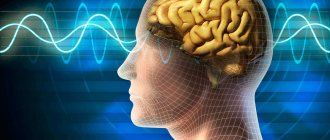Treatment of persecutory delusions includes selection of pharmacotherapy and work with a psychotherapist. Typically, biological treatment produces results within a few days after the start of therapy. When using outpatient tactics, it is important not to neglect follow-up visits to the doctor and not to conceal subjective feelings about your current state of health - this will help the doctor adjust the treatment and discontinue pharmacotherapy.
It is important for the patient and his relatives to understand that the disease has a high risk of relapse. Therefore, you should not skip taking prescribed medications or completely abandon treatment after a positive effect from pharmacotherapy has been achieved.
Treatment in a hospital is sometimes necessary to relieve an acute condition, extensive examination and rapid selection of pharmacotherapy. The exacerbation is relieved in 2–3 days, the selection of pharmacotherapy takes 3–4 weeks due to intensification of treatment. Forming remission also includes working with psychologists and psychotherapists who will help get rid of addictions that arise during the long course of the disease.
Consultation with a doctor for the treatment of persecutory delusions:
+7
Thank you for your trust!
- Diagnosis and treatment without registration
- Selection of therapy on an outpatient basis, anonymously
- Help from a psychotherapist and psychiatrist
| Service | Price | |
| Ambulatory treatment | ||
| Psychiatrist consultation | 4 500 ₽ | |
| Appointment with a psychotherapist | 4 500 ₽ | |
| Reception of the chief physician Bocharov A.V. (Associate Professor, Candidate of Medical Sciences) | 6 000 ₽ | |
| Consultation with a psychiatrist at home | 6 000 ₽ | |
| Treatment in hospital | ||
| Delivery to hospital | For free | |
| Standard room | 7 700 ₽ | |
| 3-bed superior room | 10 600 ₽ | |
| 2-bed superior room | 13 700 ₽ | |
| 1 local VIP chamber | 19 000 ₽ | |
| Doctor's appointment 2 weeks after discharge | For free | |
Patients with persecution mania
Patients suffering from pathology constantly feel a false belief in the continuous surveillance conducted by certain forces. They are confident that such a threat is real. Controlling what is happening requires continuous tension. Obsessive thoughts do not allow patients to rest. Lack of rest and rest wears out the body in a short time. Patients are configured to protect themselves and in this state can be dangerous both to themselves and to others.
In the event of a collision between a non-medic and patients suffering from persecutory delusions, it is recommended not to argue about the presence of personnel who conduct constant surveillance. The best option would be to contact a psychiatrist for advice.
How to behave to others?
First of all, it is necessary to help a sick person understand his problem and convince him to see a psychotherapist. It is very important to find a specialist who will find an approach to such a patient. The success of treatment and the emotional state of the patient largely depend on the level of trust in psychotherapists and psychiatrists.
You should also monitor the intake and dosage of medications prescribed by your doctor.
It is necessary to be patient and try to provide a favorable psycho-emotional atmosphere. There is no need to show excessive anxiety and negative reactions; all these actions encourage retaliatory attacks of aggression.
Relatives of a patient diagnosed with persecution mania should put themselves in the patient’s shoes, so if a person believes that some secret organization wants to kill him, then there is no need to convince him of the opposite.
Persecution mania disease
As a disease, persecution mania has not yet been fully studied. Observations made it possible to consider an increased risk of onset in patients in whose family the diagnosis was observed.
As a result of a stressful situation or for other reasons, patients develop persecution mania. Patients feel the constant presence of surveillance. As the patient develops, the body wears out due to the lack of long hours of rest. It is recognized as a manifestation of manic-depressive psychosis, schizophrenia and some other psychiatric diagnoses.
An increased risk of onset of the disease is observed in patients suffering from alcoholism or drug addiction. Often the disease begins against the background of neurological diagnoses. Primarily Alzheimer's disease and Parkinson's disease.
Stages of development and immersion in your fictional world
Persecution mania develops gradually in three stages, each of which has its own symptoms and signs:
- The first stage is characterized by the presence of primary signs of the development of paranoia. Closedness, excessive worry, and increased levels of anxiety begin to appear.
- In the second stage, symptoms increase. Behavior becomes more restless, the person is unable to interact with others and adapt to society. Fear becomes a constant companion, and open complaints against others begin.
- At the third stage , uncontrollable signs of aggression begin and severe depression develops. A special category of patients may attempt suicide due to fears and depression. Behavior becomes suspicious and wary. There is a lack of trust in the people around you. There may be a misinterpretation of current events. The patient does unusual things that are completely inconsistent with everyday habits. It should be especially emphasized that all the thoughts of an individual are concentrated on his exceptional personality and the particularity of his significance for society. Also characteristic is the desire for self-isolation, aimed at limiting the influence of the environment.
Topic article: Breast cancer survival
At the initial stage of development, persecution mania looks quite harmless, but already during this period the disorder prevents a person from living a full life. Living in constant fear and tension, the patient provokes the development of other mental and somatic diseases. It is especially difficult for relatives and other people who surround such a person.
Pursuit mania in women
The onset of pathology in women is often associated with hormonal changes occurring in the body. This could equally be any resolution of pregnancy (abortion, miscarriage, childbirth), a hormonal surge during adolescence or menopause. There is also a significant role in the onset of pathology when stressful situations arise.
Women who suffer from suspicions of persistent stalking are characterized by increased levels of fear for their health. Often the feeling of being watched extends to family members.
The constant feeling of being watched provokes hysteria. Nervous conditions may cause body temperature to rise, heart rate to increase, and painful symptoms to occur.
How is diagnostics carried out?
To clarify the main diagnosis and determine persecutory mania, the doctor carries out:
- conversation with the patient;
- communicates with his loved ones and relatives;
- special testing is carried out.
During an interview with a person, a psychiatrist listens to his complaints and determines the degree of criticality of his disease. Relatives can describe the objective symptoms of the deviation, talk about the first case of persecution mania, the events and illnesses that preceded it.
It is of great help to have patients undergo psychological tests (questionnaires, drawings). After the answers and their analysis, an understanding arises about the peculiarities of thinking, emotionality, attentiveness, ability to remember, and the presence of paranoid deviations.
To exclude pathologies that may be accompanied by similar symptoms, instrumental diagnostic methods are used:
- EEG;
- MRI;
- CT.
Experts distinguish three stages of the disease. The initial stage is expressed in a slight change in the patient’s character. He becomes overly anxious, suspicious, and begins to protect himself from contacts. Such deviations do not bother others and are attributed to fatigue, stress, age, and hormonal characteristics. The second degree of development is the desire for solitude and a constant feeling of fear. The third stage manifests itself in full, the patient becomes self-centered, believes himself to be a victim of all kinds of conspiracies, runs away and hides.
Paranoia (persecution mania)
Persuasive delusions, also called paranoia, can affect men and women. The list of reasons for the onset of pathology states:
- congenital predisposition;
- drug addiction;
- alcoholism;
- injuries leading to brain damage;
- neurological diagnoses, Parkinson's disease, Alzheimer's disease;
- other reasons.
Often doctors are unable to associate the onset of a disease with a specific starting point. Regardless of the patient’s gender, the patient may expect the presence of constant surveillance from representatives of large global communities or simply neighbors. Although there is a tendency for the majority of patients to classify their “controllers” as representatives of the authorities, alien civilizations and other large structures and departments.
The diagnosis is often made in patients in the older age group. Especially those who have suffered a stroke suffer from neurological diseases. In this situation, delusional thoughts more often spread to family members and acquaintances, from the point of view of the paranoid, claiming his property and wishing him death.
The main causes of phobias
Experts identify the following causes of inexplicable fear: biological, genetic, psychological, social.
Biological and hereditary factors
The lack of a certain acid in the body (gamma-aminobutyric acid), which has a sedative effect, leads to an increase in fear and anxiety, which in turn contributes to the risk of phobias. The reasons for the decrease in the amount of this acid may be brain injuries, long-term use of medications and psychotropic drugs, stress and depression.
In addition, the cause of phobias may be a genetic factor. If one of the parents suffers from a phobic disorder, then the risk of developing a phobia in the child is very high. However, it is difficult to say what exactly influenced this, a hereditary predisposition or certain behavior of a relative.
Social reasons
Most often, the occurrence of phobias is facilitated by the influence of external factors, especially various shocking events that occurred in childhood. It is the psychological traumas of childhood: insect or animal bites, loss of loved ones or prolonged separation, negative experiences of swimming or enclosed spaces, and the like that usually grow into unpredictable fears.
Psychological factors
Some phobic disorders and panic attacks have no connection with any traumas or events; in this case, the causes are often hidden in the subconscious. Incorrect explanation of any words or actions, an incorrect view of current and future events, infringement of characteristic features and other psychological problems can also affect the occurrence of phobias.
Certain fears appeared in the process of evolution, for example, the fear of open space has its roots in the distant past, when in an unprotected place there was a danger of attack by wild animals.
Social reasons
The emergence of social phobias can be facilitated by overly strict upbringing or criticism of parents, inadequate assessment by adults of the events occurring with the child, and unsuccessful experiences of communicating with peers or the opposite sex.
Thus, traumatic situations, affecting a fragile psyche or hereditary predisposition, as well as social and financial status, contribute to the emergence and development of various phobias.
Signs and symptoms of persecutory mania in women
When pathology appears, women become very nervous and wary. They try to constantly monitor what is happening nearby. They may refuse to leave the premises and strive for maximum privacy. Problems arise in communicating with friends and relatives. Patients often leave work and stop social contacts. Suspicions may extend to family members and acquaintances.
Women often begin to stop caring for themselves. Their privacy is being violated. The patient begins to assume a desire to harm her on the part of almost everyone she meets. She may be afraid of cases of violence against her; in defending herself, she can be dangerous to others. Complaints to the police or government agencies are often possible. The complaints are not confirmed.
Patients become difficult in family life. Suspicions may extend to the closest family members, husband, children, parents.
Principles of treatment
This mental disorder is an incurable disease, but properly selected medication and psychotherapy can control the symptoms of manic schizophrenia. The basis of treatment is antipsychotics, which are combined with anxiotilics and β-adrenergic receptor blockers.
In the acute period, when the signs of manic schizophrenia are especially pronounced, and the patient himself is extremely aggressive (and sometimes dangerous), hospitalization is required. In such a condition, round-the-clock medical supervision and individual selection of the dose of antipsychotics are necessary. It should be effective enough to relieve the main symptoms of manic schizophrenia, but at the same time not cause severe adverse reactions.
In parallel with drug therapy, in the hospital at the Cordia clinic, much attention is paid to physiotherapy and social rehabilitation to correct everyday behavior and communication with other people. After relief of acute symptoms, transfer to outpatient treatment is possible. A maintenance dose of antipsychotics is prescribed, and periodic visits to the clinic are recommended. To monitor the intake of prescribed drugs, tests are done to determine their concentration in the blood.
If you have any questions, want to make an appointment or call a doctor at home, call us at +7.
Signs and symptoms of persecutory mania in men
In most cases, the syndrome manifests itself in men under the assumption of continuous surveillance. Already in the early stages, the patient tries to isolate himself from the world as much as possible, assuming that everyone he meets could be an enemy.
Men have a hard time with the constant feeling of being watched. Their body wears out quickly. In response to perceived aggression, they may be inclined to attack people, considering them a potential enemy. Constant tension often turns into depression, leading to thoughts of suicide. In a state of seizures, the patient is often dangerous to loved ones and others. In an effort to “save” them from imminent death, an attempt to kill those “being saved” is possible.
Manic schizophrenia: symptoms and course
There are several stages in the development of the disease:
- prodromal period;
- paranoid (manic);
- Kandinsky-Clerambault syndrome;
- paraphrenic syndrome.
initial stage
Manic schizophrenia develops gradually. First, pay attention to the following signs:
- narrowing the patient’s range of interests;
- rigidity of thinking;
- distrust and suspicion of the words and actions of people around you, of current events;
- too faded and unexpressed emotional reactions.
The average duration of the prodromal stage of the disorder is about 5–10 years. But the exact period depends both on the individual characteristics of the patient and on his living conditions, social environment, attitude towards him in the family and other factors.
Paranoid stage
For the delusional variant of the symptoms of manic schizophrenia, the formation of a clear, systematized delusion, varying in content, is typical; sometimes several plots of delusional ideas are simultaneously present, but as a rule, they are clearly related to each other. The patient thinks that he is being watched on the street or in transport, and the “pursuers” exchange secret signs.
Thoughts appear that this is the work of some sects, secret government organizations, sorcerers, and psychics. Hallucinations that arise at subsequent stages also correlate with previously formed delusional thoughts.
The hallucinatory form is characterized by the rapid appearance of delusions of the “insight” type, this is accompanied by a feeling of relief, relaxation, as if the patient had managed to solve a complex problem and understand what was happening.
Signs of Kandinsky-Clerambault syndrome
The appearance of symptoms of the next stage of manic schizophrenia is preceded by an acutely developing state of severe anxiety, fear and panic with ideas of persecution. The hallucinatory form is characterized by the occurrence of auditory hallucinations (often shouting or obscene language).
The distinctive symptoms of manic schizophrenia in this syndrome are various automatisms, which are divided into several groups:
- Ideatorial . The patient is sure that thoughts and even dreams and experienced emotions are “put” into his head by otherworldly forces, other people.
- Sensory . A person experiences real or fantastic sensations in the body. This may be a feeling of warmth, cold, burning. Sometimes they claim that the skin is pierced by some kind of cosmic or magical rays, lasers, etc.
- Motor . The patient is convinced that his actions, including his speech, are controlled from the outside.
Symptoms of paraphrenia
Behavior and mood changes sharply from openly angry and aggressive to complacent and benevolent. A person constantly talks about the emergence of unusual abilities, for example, he is sure that he can read other people’s thoughts and influence them, change the well-being of other people, cause or treat diseases, etc.
Signs of manic schizophrenia with paraphrenia also include pseudohallucinations. The patient “remembers” past events that actually did not happen, and reality is closely intertwined with fiction. At the same time, the patient is sure that he was forced to forget it, and now enlightenment has descended on him.
Subsequently, ideas of greatness of absurd content are added to the already existing symptoms. A person believes that he is endowed with special power, can “decide the destinies” of the entire planet, and is sure that there is a real war going on in the world between his supporters and “enemies.” In such a state, the so-called “monologue symptom” is typical, when even to a simple question the patient gives a detailed, verbose answer. In this case, the topic of the conversation is usually completely lost, and the speech itself becomes meaningless and meaningless.











